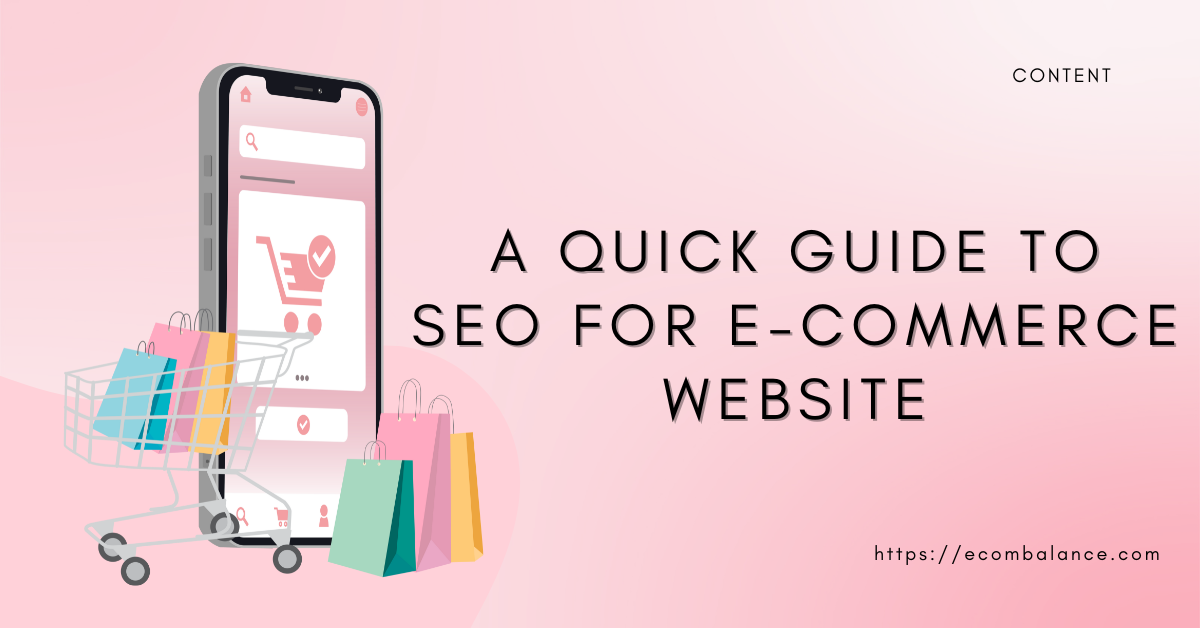
Multi channel ecommerce software can make your online selling journey much more comfortable. These tools put all the major aspects of running an ecommerce business in one place. Plus, for whatever areas they don’t cover, the best ones have neat integrations to plug into other specialized tools.
Read on to discover what these tools can do for your business. We’ll also list a few options you might like to try.
Understanding Multi Channel Ecommerce Software
Multi channel ecommerce software refers to specialized applications for ecommerce businesses. These software applications help businesses to manage their sales across multiple online selling channels. If you sell in more than one online space, you should look into using one.
This software essentially operates as a central hub so that you can streamline different aspects of your online store. This way, you can reach a wider audience and simplify your operations.
Key Features of Multi Channel Ecommerce Software
In essence, these tools help online commerce run more efficiently. Below are some of their basic functions that improve efficiency and give you valuable insights to grow your ecommerce business.
Product Management and Listing
- Create and manage product listings across channels, like your website, online marketplaces, and social media platforms, from a single interface.
- Update product details such as descriptions, prices, and images across all channels simultaneously, saving time and ensuring consistency.
- Store and manage rich product information, like specifications, variations, and multimedia content, within the platform. This facilitates easy access and distribution across channels.
- Tailor product details like descriptions, titles, and images, to meet the specific requirements and audiences of each sales channel.

Inventory Management and Order Fulfillment
- Prevent overselling and stockouts by leveraging automatic updates for inventory levels across all connected channels whenever a sale occurs on any platform.
- Set inventory thresholds once and receive notifications whenever levels fall below predefined numbers to alert you of the need to restock.
- Centralize order processing from different channels for efficient fulfillment from a single location. This eliminates the need to log in to each platform separately to fulfill orders.
- Automate picking, packing, and shipping processes.
- Compare rates for different carriers and choose the most cost-effective shipping options within the platform.
Real-time Analytics and Reporting
- Gain insights into sales performance across all channels, including sales trends, revenue breakdowns, and product performance by channel
- Analyze customer behavior data, such as purchase history and browsing habits. This helps you understand customer preferences and use that to improve product recommendations and marketing strategies.
- Track inventory turnover rates, identify slow-moving products, and optimize inventory management for improved cash flow.
- Measure how effective your marketing campaigns are across channels so you can identify what’s working and optimize your spend.
- Create custom dashboards that show you key performance indicators relevant to your business goals so you can make better decisions.
- Where available, use the mobile app to manage your online business on the go.
Customer Management and Marketing
- Track and manage customer interactions across all channels through a unified view so you can offer a more personalized and consistent customer experience.
- Store and manage customer information like purchase history and preferences from all channels in one place.
- Offer customers real-time order tracking information and facilitate communication across all channels.
- Automatically send reminder emails to customers who abandon their shopping carts.
- Create automated email campaigns, promotions, and social media marketing initiatives across channels to target your ideal customers.
- Integrate your CRM system to further enhance customer segmentation, personalization, and loyalty programs.
Payment Options
- Offer various payment gateways to customers purchasing from different channels, offering a smoother checkout experience .
- Secure customer data by offering options that adhere to industry security standards, i.e. PCI compliance.
- Allow purchases through major credit cards and debit cards.
- Offer alternatives to traditional payment methods, like Apple Pay, Google Pay, Klarna, Afterpay, Bitcoin, Ethereum, etc.
- Support features for international payment processing, including multi-currency support and international fraud prevention tools.
- Manage payment options from a single platform, eliminating the need for multiple accounts with different processors.
- Receive instant notifications of payments and efficiently within the platform.\
Reporting and Analytics
- Comprehensive reports and analytics on sales performance, customer behavior, and inventory levels across all channels.
- Use real-time data to make informed decisions about marketing strategies, product offerings, and overall business operations.
Integration Capabilities
- Integrate with popular online marketplaces like Amazon, eBay, and Etsy for seamless product listing, inventory, and fulfillment management across platforms.
- Link your CRM to look at customer interactions across channels, personalize marketing efforts, and improve customer loyalty.
- Integrate with your WMS to track inventory levels in multiple warehouses and allocate stock for fulfillment from the most optimal location.
- Link to marketing automation platforms to personalize customer communication, inform email campaigns, and manage social media marketing across channels.
Top Multi Channel Ecommerce Software Solutions

Choosing the right multi channel ecommerce software is crucial for streamlining your online business operations and achieving sustainable growth. Let’s look at some of the more popular platform options available to you for online commerce.
Shopify
Shopify offers a user-friendly interface and an extensive app marketplace. It also has omnichannel marketing features and a mobile app for business management on the go.
This option is ideal for small to medium-sized businesses, especially those that want to focus on building their own branded online store. Shopify is great for selling across multiple channels, too.
Pricing starts at $29 per month for Basic Shopify, and scales up based on added features.
BigCommerce
Bigcommerce is known for its built-in scalability, robust B2B features, and headless commerce capabilities. It also offers strong SEO tools.
This option is ideal for medium to large-sized businesses with high-volume sales. It’s great for B2B needs and businesses with a focus on SEO and headless commerce strategies.
Pricing generally starts around $80 per month, but is based on custom quotes that meet your specific business needs.
WooCommerce
WooCommerce is a highly customizable open-source platform with a large and active developer community. They offer an extensive plugin library for adding features.
This option is ideal for tech-savvy businesses, developers, and business owners who want a highly customizable solution for less.
WooCommerce is free, open-source software, but you pay additional costs for website hosting, themes, and plugins.
Wix Ecommerce
Wix Ecommerce is an easy to use drag-and-drop website builder. It has strong design features, built-in marketing and SEO tools.
This option is ideal for entrepreneurs, startups, and small businesses who value ease of use, attractive website design, and built-in marketing tools.
Pricing starts at $23 per month for the Business Basic plan. Ecommerce features came with the higher-tier plans like Business Unlimited for $27 per month, or Business VIP at $49 per month.

Squarespace Commerce
Squarespace Commerce offers a user-friendly interface with beautiful design templates. It also has strong marketing and analytics features.
This option is ideal for entrepreneurs, creatives, and small businesses who want a platform that’s easy to use and focuses on design aesthetics and built-in marketing tools.
Pricing starts at $26 per month for the Business plan with ecommerce features included.
Sellbrite
Sellbrite offers inventory management across multiple channels, bulk listing and order processing tools, and marketplace automation features.
This option is ideal for businesses that already sell on multiple channels or marketplaces and need a robust solution. Sellbrite offers inventory management, order fulfillment, and marketplace automation.
Pricing starts at $49 per month for the Basic plan, and scales up based on features and sales volume.
ShipStation
ShipStation has powerful shipping management features, discounted shipping rates from major carriers, plus international shipping support.
This option is ideal for businesses that have high-volume shipping needs. It’s also great for businesses selling internationally.
Pricing starts at $29 per month for the Starter plan, and scales up based on shipment volume.
Zoho Commerce
Zoho Commerce offers built-in marketing and SEO tools. It integrates seamlessly with other Zoho business applications, making it very affordable.
This option is ideal for businesses that already use other Zoho applications. It’s also great for businesses on a budget that need a well-integrated suite with built-in marketing and SEO tools.
Pricing starts at $39 per month for the standard plan, and scales up based on features and storage needs.
Orderhive
Orderhive offers inventory management across multiple warehouses, plus purchase order management and dropshipping automation features.
This option is ideal for businesses with complex inventory management needs.
Pricing is based on custom quotes around your specific business needs.
Choosing the Right Multi Channel Ecommerce Platform
The right platform is as important as the right tools when it comes to the success of your ecommerce business. Consider the following factors when you’re looking for the right channels to sell on.

Streamlined Operations
Trying to manually update product listings, manage inventory, and fulfill orders across multiple platforms individually is a herculean task. It would be too chaotic and time-consuming to be worth the effort. A multi channel platform centralizes these tasks, saving you these valuable resources.
Improved Efficiency and Reduced Errors
More than being inconvenient, manual channel management tends to lead to errors. Software helps you keep accurate and timely inventory counts, order processing, and customer communication.
Enhanced Customer Experience
Accurate product information, real-time inventory updates, and efficient order fulfillment supports a seamless, more positive customer experience across sales channels.
Scalability and Growth Potential
The right multi channel platform should be able to scale alongside your business as it grows and expands.
Frequently Asked Questions
Which features should I look for in multi-channel ecommerce software?
When choosing multi-channel ecommerce software, consider the following options:
- Marketplace integration software allows you to easily connect and manage listings across different channels. You can manage multiple marketplaces alongside your own online store from a central hub.
- Product cataloging and management software focuses on uploading, editing, and categorizing products efficiently.
Inventory management software lets you centrally track inventory levels across all channels. This helps you to avoid overselling and ensure accurate stock levels. - Order management software gives you the ability to fulfill orders, track shipments, and manage returns from a single platform.
- Workflow automation software automates repetitive tasks for you so you can save time.
- Shipping management software integrates with different shipping carriers to facilitate efficient label generation and cost comparison.
- Promotions management software allows you to create and manage promotions across all channels to boost sales.
- Analytics and reporting software gives you insights into sales performance, customer behavior, and areas for improvement.
Can multi-channel ecommerce software integrate with my existing systems?
Yes, many options offer integration capabilities with existing systems. They usually use one of the following methods to make the connection:
- Popular software often comes with pre-built connectors for common systems to allow for seamless data exchange.
- Third-party integration tools act as intermediaries so you can connect software that has no pre-built connector.
- Application Programming Interfaces (APIs) facilitate custom integrations where you need more flexibility. This requires development expertise, though.
How does multi-channel ecommerce software help in managing inventory?
Multi-channel ecommerce software offers the following key functionalities:
Centralized Inventory Management
- Synched inventory records for all channels.
- Fewer discrepancies and more accurate inventory data.
Real-Time Updates
- One system that automatically tracks stock levels in real-time as it deducts inventory whenever a sale occurs on any channel.
- Customers see the most up-to-date product availability across all channels.
Improved Forecasting and Replenishment
- Analysis of multi-channel sales data to identify trends and predict future demand.
- Automated reordering to ensure you always have enough stock.
Is multi-channel ecommerce software suitable for small businesses, or is it only for larger enterprises?
Absolutely. Multi-channel ecommerce software can even offer small businesses greater benefits, like:
- Tasks automation and centralized management to save valuable time and resources.
- Increased visibility to reach new customers across different online channels without excessive manpower.
- Efficient scaling without needing additional personnel for multiple channel management.
- Wider product offerings and presence across popular marketplaces.
What Is EcomBalance?

EcomBalance is a monthly bookkeeping service specialized for eCommerce companies selling on Amazon, Shopify, Ebay, Etsy, WooCommerce, & other eCommerce channels.
We take monthly bookkeeping off your plate and deliver you your financial statements by the 15th or 20th of each month.
You’ll have your Profit and Loss Statement, Balance Sheet, and Cash Flow Statement ready for analysis each month so you and your business partners can make better business decisions.
Interested in learning more? Schedule a call with our CEO, Nathan Hirsch.
And here’s some free resources:
- Monthly Finance Meeting Agenda
- 9 Steps to Master Your Ecommerce Bookkeeping Checklist
- The Ultimate Guide on Finding an Ecommerce Virtual Bookkeeping Service
- What Is a Profit and Loss Statement?
- How to Read & Interpret a Cash Flow Statement
- How to Read a Balance Sheet & Truly Understand It
Conclusion
Choose the multi channel ecommerce software suite that can meet all your needs. These tools are meant to make online commerce easier, so make sure the one you get actually helps you.








